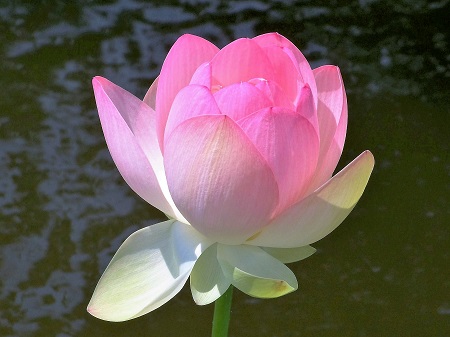You Cannot Be There Then
Embracing the Present: The Power of Living in the Moment
In the fast-paced world we inhabit, it's easy to get caught up in the whirlwind of thoughts about past regrets and future anxieties. However, there's a profound truth that many philosophical, spiritual, and psychological traditions emphasize: humans experience life in the present moment. Obsessing about the past or anticipating future events is largely futile and can detract from the richness of our current experiences. Understanding and embracing the present moment can lead to a more fulfilling, peaceful, and meaningful life.
The Nature of Human Experience
Human experience is fundamentally rooted in the present. Our senses, emotions, and thoughts are engaged with what is happening right now. The present moment is the only time we truly have. The past is a collection of memories, and the future is a set of expectations, both of which exist only in our minds. This is not to say that reflecting on the past or planning for the future is entirely without value, but when these activities dominate our thoughts, they can prevent us from fully living in the present.
The Futility of Obsessing About the Past
The past is immutable; it has already happened and cannot be changed. While reflecting on past experiences can provide valuable lessons, dwelling on past mistakes, regrets, or traumas can be harmful. Obsessing about the past often leads to feelings of guilt, shame, and sorrow, which can hinder our ability to enjoy the present.
Psychological research supports this view. Rumination, or the tendency to repeatedly think about past events, is strongly linked to depression and anxiety. This constant replaying of past experiences can trap us in a cycle of negative thinking, preventing us from moving forward and enjoying the present moment.
The Anxiety of Anticipating the Future
Similarly, constantly anticipating future events can lead to anxiety and stress. The future is inherently uncertain, and while planning and goal-setting are essential aspects of life, fixating on potential outcomes can cause unnecessary worry. Many of our fears about the future never materialize, and the time spent worrying about them can be time wasted.
Studies have shown that excessive worrying about the future, known as anticipatory anxiety, can have detrimental effects on mental health, leading to heightened stress levels and decreased well-being. It can also prevent us from taking action in the present, as we become paralyzed by fear of what might happen.
The Benefits of Living in the Present
1. Enhanced Well-being
Living in the present moment has numerous benefits for mental and emotional well-being. Mindfulness, the practice of focusing on the present, has been shown to reduce stress, anxiety, and depression. By grounding ourselves in the here and now, we can experience a greater sense of calm and contentment.
2. Improved Relationships
Being present improves our relationships. When we are fully engaged with the people around us, we can communicate more effectively and empathetically. This presence fosters deeper connections and more meaningful interactions, as we are truly listening and responding to others.
3. Greater Productivity and Creativity
Focusing on the present can also enhance productivity and creativity. When we are not distracted by past regrets or future worries, we can devote our full attention to the task at hand. This focus can lead to better problem-solving, increased innovation, and higher quality work.
4. Increased Resilience
Living in the moment helps build resilience. By accepting the present as it is, without judgment, we can better cope with challenges and setbacks. This acceptance allows us to adapt more easily to change and to recover more quickly from difficulties.
Practical Steps to Live in the Present
1. Mindfulness Meditation
Practicing mindfulness meditation is a powerful way to cultivate present-moment awareness. This involves paying attention to your thoughts, feelings, and sensations without judgment. Even a few minutes of mindfulness each day can make a significant difference.
2. Deep Breathing
Deep breathing exercises can help anchor you in the present moment. Focusing on your breath brings your attention away from distracting thoughts and back to the current experience.
3. Engage Your Senses
Engaging your senses is a simple yet effective way to stay present. Notice the sights, sounds, smells, tastes, and tactile sensations around you. This sensory awareness can help ground you in the here and now.
4. Limit Multitasking
Multitasking can pull you out of the present moment. Try to focus on one task at a time, giving it your full attention. This approach can increase both the quality of your work and your overall sense of fulfillment. Multitasking has been found to cause brain damage and a list of cognitive impairments. Considering that many people believe multitasking is beneficial and they habitually multitask, this is a serious issue.
5. Gratitude Practice
Practicing gratitude can shift your focus to the present. Take time each day to reflect on what you are grateful for in the here and now. This practice can enhance your appreciation for the present moment and reduce negative thinking.
Conclusion: The Power of Now
Life unfolds in the present moment. By obsessing about the past or anticipating future events, we risk missing out on the beauty and richness of our current experiences. Embracing the present can lead to enhanced well-being, improved relationships, greater productivity, and increased resilience. Through mindfulness, deep breathing, sensory engagement, focused attention, and gratitude, we can cultivate a deeper connection to the present and live more fully and joyfully.
In the end, the only moment we truly have is now. By embracing the present, we open ourselves to the endless possibilities and profound experiences that each moment has to offer.

